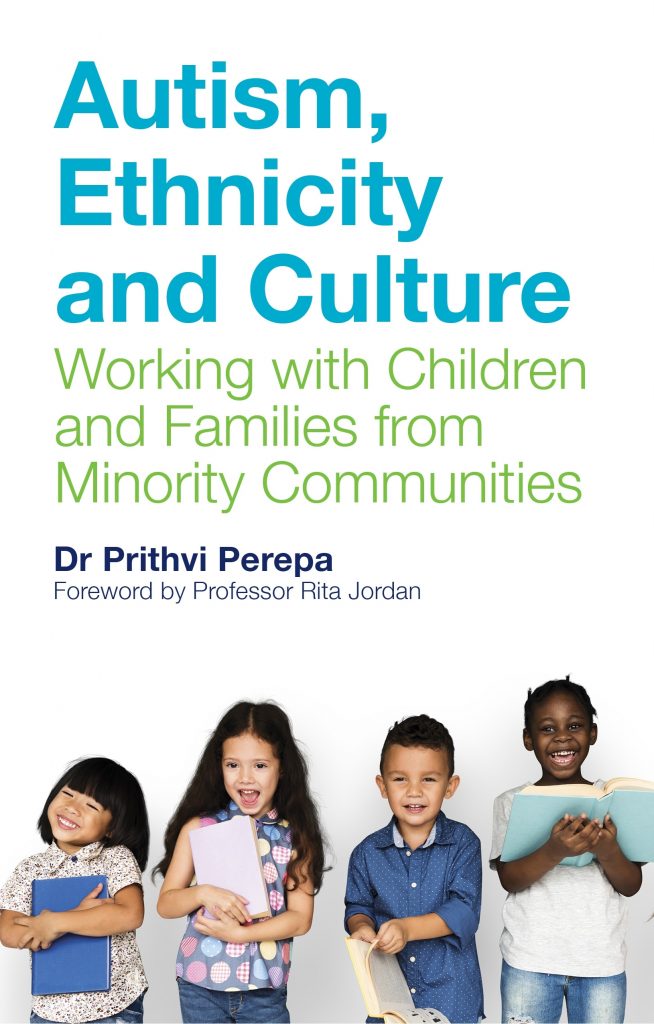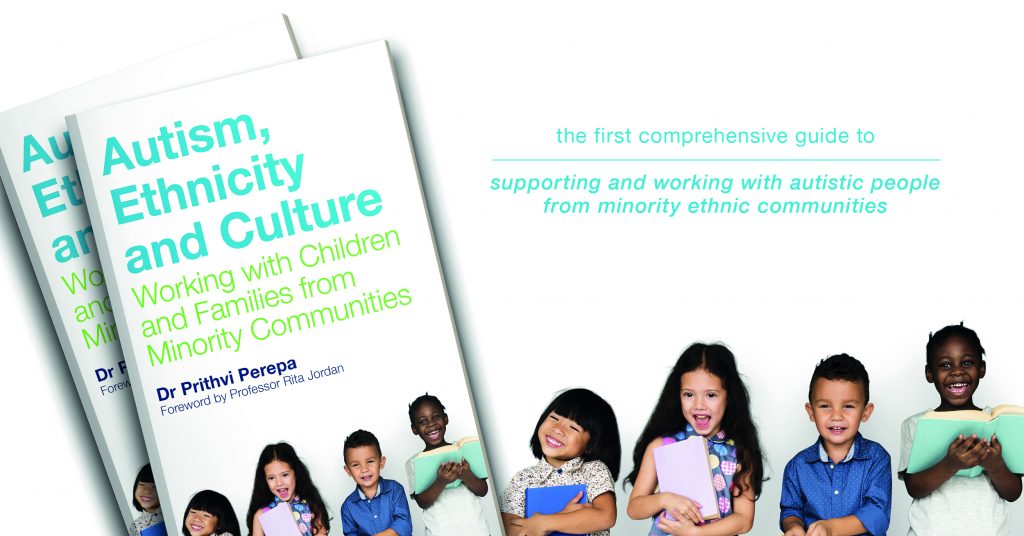Dr Prithvi Perepa is an Associate Lecturer (SEN) at the University of Northampton. He trained as a special needs teacher and worked in the field of autism for over 20 years. He completed his M.Ed in Autism and his PhD in cultural perceptions of autism.
Dr Perepa’s new book for professionals, Autism Ethnicity and Culture, combines a comprehensive overview of autism and minority ethnic communities with guidance on how best to support children and young people from these communities.
Have you ever found yourself in a pickle while you were abroad because you misunderstood someone’s communication or the local social norms? Most people who have travelled will probably recall an incident when this happened. In fact, many businesses now focus on developing cross-cultural communication skills in their staff so that they are more effective when interacting with people from a different cultural background. As most people are aware, communication and social interaction skills are particularly challenging for individuals on the autism spectrum. Then why is it that culture is often not considered when working with individuals from different cultural or ethnic backgrounds? This is an issue that has bothered me for a number of years now.
 My own interest in cultural aspects of autism emerged while I was living in Birmingham (UK) and realised that families from minority ethnic communities were often not accessing the available support services. The accepted explanation at that time was that families from these communities have close networks and therefore they look after their own; which in effect meant that they do not need mainstream support services. As a member of a minority ethnic community in the UK, I was aware that this was not always the case and that there are many individuals from ethnic minorities who have few or no contacts at all within their own communities. This disparity between the accepted version and my own personal experience led to one of my initial pieces of research in the topic, which was to explore the reasons why these families were not accessing the support. This research provided evidence that the reason families do not access services is because of the differences between their expectations and what the service providers offer, as well as social and economic factors. This highlighted for me the need to develop services which were culturally appropriate; and I spent time developing such services for the National Autistic Society and delivering training on the topic.
My own interest in cultural aspects of autism emerged while I was living in Birmingham (UK) and realised that families from minority ethnic communities were often not accessing the available support services. The accepted explanation at that time was that families from these communities have close networks and therefore they look after their own; which in effect meant that they do not need mainstream support services. As a member of a minority ethnic community in the UK, I was aware that this was not always the case and that there are many individuals from ethnic minorities who have few or no contacts at all within their own communities. This disparity between the accepted version and my own personal experience led to one of my initial pieces of research in the topic, which was to explore the reasons why these families were not accessing the support. This research provided evidence that the reason families do not access services is because of the differences between their expectations and what the service providers offer, as well as social and economic factors. This highlighted for me the need to develop services which were culturally appropriate; and I spent time developing such services for the National Autistic Society and delivering training on the topic.
Literature in the field of autism suggests that some individuals with autism have difficulties in adapting their behaviour according to a given situation. This can make it really difficult for a person from a minority cultural or linguistic background to move between their own cultural/linguistic norms and those of the dominant cultural group. And yet, not many of the existing communication skills development programmes or social skills training packages aimed for individuals with autism acknowledge these subtleties. This would suggest that we, as professionals working in the field, need to be careful when we are devising supportive strategies or interventions for individuals with autism from minority ethnic communities to ensure that what is being planned is appropriate for the individual. Not doing so could disable the individual further as well as alienating them from their own community.
 A lot of my work in the field of autism for the past twenty years focused on individuals from minority ethnic communities and their families. However, I am aware that this is still a relatively under-researched topic and does not appear in the wider discussions around autism. I still come across a lot of assumptions about families from minority communities with the focus being on their ‘otherness’. While this might be the case in some situations, I do feel that the responsibility also lies with professionals and services to understand the needs of these individuals and adapt their practice and services accordingly. We cannot claim that we are working towards inclusion, if we do not embrace diversity within the world of autism.
A lot of my work in the field of autism for the past twenty years focused on individuals from minority ethnic communities and their families. However, I am aware that this is still a relatively under-researched topic and does not appear in the wider discussions around autism. I still come across a lot of assumptions about families from minority communities with the focus being on their ‘otherness’. While this might be the case in some situations, I do feel that the responsibility also lies with professionals and services to understand the needs of these individuals and adapt their practice and services accordingly. We cannot claim that we are working towards inclusion, if we do not embrace diversity within the world of autism.
Find out more about the book Autism, Ethnicity and Culture.
If you would like to read more articles like this and get the latest news and offers on our books about autism, why not join our mailing list? We can send information by email or post as you prefer. You may also be interested in liking our Autism, Asperger’s and related conditions Facebook page.
